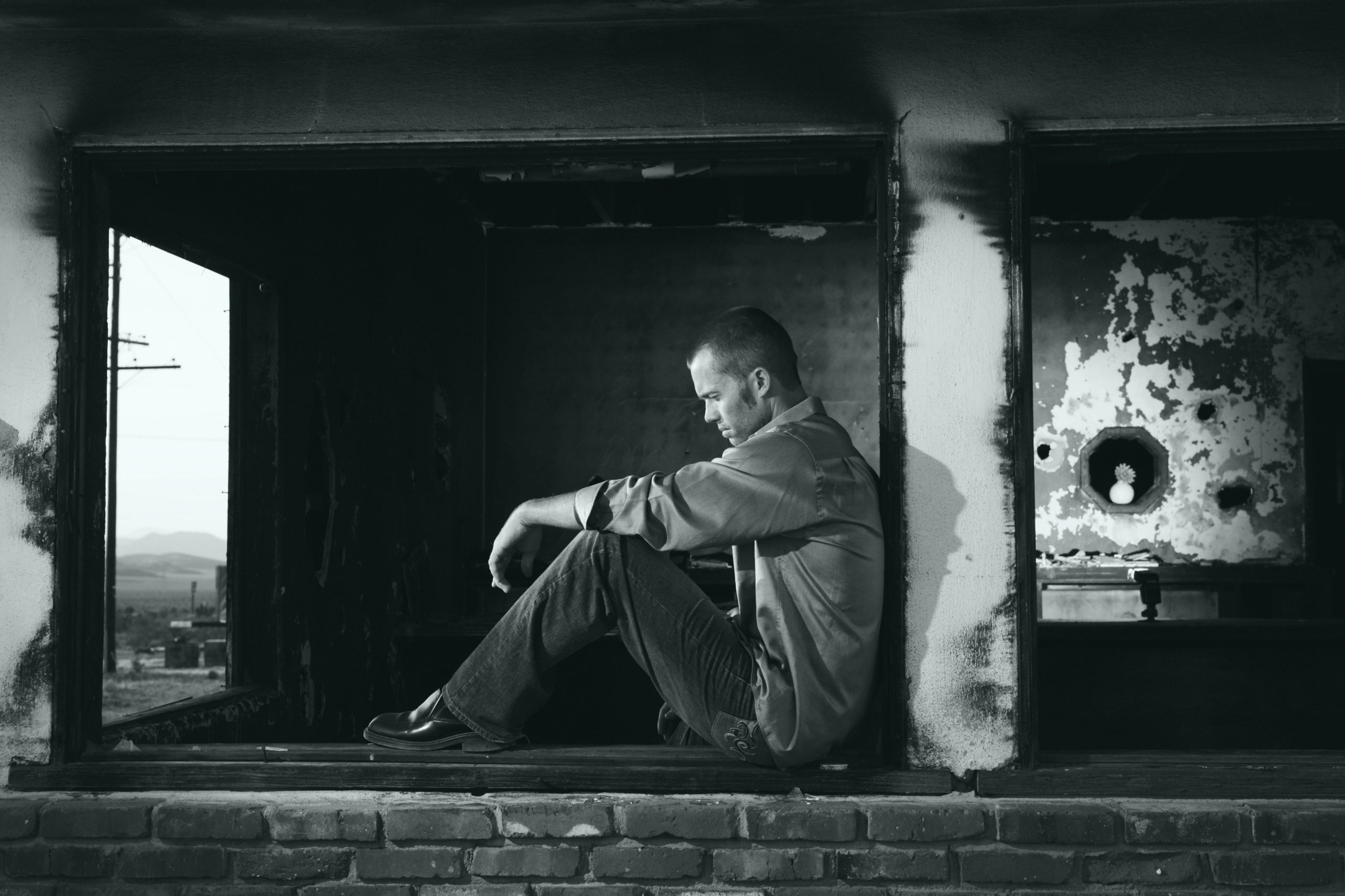“The thing that gets me down – that makes we want to give up, is that it’s endless – that this is just my life. My focus, my time, my money – it all goes towards maintaining a baseline of bearable pain, and it feels futile – and like a trap. For me, it’s not just my pain. It’s everything around my pain, too. I put in so much effort and I don’t feel better, and I start feeling like there’s no point in trying, and that the best I can do is just ignore it. “(Maya)
When we’re done fighting our chronic pain, have no energy left to try and feel good, and are worn down to the point where we emotionally tap out, we are vulnerable to depression. Research has suggested such a strong correlation between chronic pain and depression that it’s estimated that up to 85% of people who live with chronic pain also live with depression.
Awakening every day to the prospect of the same pain, the same challenges, and often the same lack of change, can chip away at our resolve to keep striving for improvement. Because our efforts feel futile, it is not surprising that chronic pain sometimes leads to short or long term bouts of depression. When fighting seems like a waste of time and energy because nothing is working, and running away isn’t an option because there is no way to escape ourselves, then we often unconsciously opt out of the intensity, helplessness, and fear that our pain brings. We numb ourselves, we shut down, and we withdraw from life.
Depression as a threat response
As the stigma surrounding mental health is slowly dismantled, we’re developing an opportunity to see depression, not only as a pathological illness, but also as a natural, adaptive response to prolonged adverse experiences. An element of depression is rooted in biological threat responses, and this is a potentially empowering revelation. When we’re faced with the threat of pain, but we’re all out of Fight and see no exit for Flight, then we’re left with one evolutionary strategy: Freeze. Depression can be looked at a bit like the ‘play dead’ response to inner turmoil. Chronic physical and emotional pain and the ordeal they bring with them play the role of an existential threat. If we truly feel flooded and ill equipped to process the threat in an effective way, then we may fall under the blanket of depression, immobilized from acting due to hardwired physiological threat responses.
We just want things to be a little easier
The deception of depression convinces us it’s not worth trying to take care of ourselves, and that by avoiding our feelings, bodies, and lives, we’ll somehow be able to hide from our pain.
“Maybe I can stay in bed just a little longer. What does it matter if I eat too little, or too much? I can shower tomorrow. I can do a lot of things…tomorrow. The small acts of love I show myself by getting up, getting dressed, eating properly, showering, and socializing seem to take too much effort.” (Jonathan)
There can be a subtle allure to depression; an inviting, but misleading sense of comfort in the numbness of it. When so much of life is painful and overwhelming – and for so long – the system shutdown of depression can almost feel like a reprieve. It’s not an approach that we consciously choose, but rather one that we mindlessly slip into – like a pair of dirty pajamas.
Depression: A default threat strategy that doesn’t work
If depression is trying to help us by shielding us from the impact of mental, physical, and emotional pain, why doesn’t it work? Why does it make everything in our lives, including our pain, so much worse? While depression does provide some sort of emotional fog that blocks out the intensity of emotional pain, it is also often accompanied by uninspired, heavy feelings about life, that are usually in contradiction to the image we have of who we’d like to be. This dissonance between our lived reality and our ideals creates an inner tension that brings about stress and shame, leading to a decrease in our self esteem and feeling of self worth. Richard C. Schwartz, the founder of the Internal Family Systems (IFS) model of psychotherapy, when speaking about the dynamic between incongruent inner aspects of our being says that “Imbalanced systems, whether internal or external, will tend to polarize.”
Our awareness of the gap between the life we’d like to live and the life we’re living can make us desperate for change, while simultaneously discouraging us from trying because our desires seem beyond reach. If we have one part of us – our ideal self – that values being social, active, and engaged with the world, and another part – our depression – that is working overtime to isolate, withdraw, and numb us from emotional and physical pain, the tug-of-war between the two parts can cause us to feel like we’re losing access to the parts of ourselves that we value most. The cycle of depression means that the further our way of life gets from our ideals, the deeper we go into our depression, and thus the further away we get from our ideal way of life.
Why we need to talk about depression
Depression can be a dangerous, and even life threatening mental health struggle. It’s so important to acknowledge that the risks of depression go beyond long term feelings of sadness, emptiness, irritability, or feeling flat. Left untreated, depression can cause significant damage to relationships, result in deteriorating mental and physical health, addiction, self harm, suicidal ideation and attempts, and suicide. It’s uncomfortable to talk about, but we don’t honor the severity of depression or allow ourselves the opportunity to begin to heal from it if we can’t bring ourselves to talk about it.
How hitting a bottom with depression can lead to change
When long, dark, nondescript days roll by, one after the other, it’s not long before more symptoms of depression start to manifest.
“I walked into my bathroom after lying on the floor of my bedroom for a few hours, looked in the mirror, and in a moment of clarity, saw who was looking back at me. I was one hundred seven pounds, regularly daydreaming about disappearing, and suffering from addiction to substances and behaviors that I still don’t talk about easily. I looked awful, and I felt worse. I knew I had been depressed for most of that year, and at many other points in my life, but I didn’t know how bad it had become until that day. That day was one of the worst and best of my life. The worst because of the state of my physical, mental, and emotional well being, and the best because it led me to ask for help, and start a journey of healing.” (Jonathan)
The courage of showing up
There is no one way to heal or treat depression, and each person has unique needs that must be honored. There are many approaches, ranging from psychotherapy and medication to spirituality and meditation, and they all have their place as healing tools. It might be that a combination of many different healing methods is needed, but what is important is that we show ourselves the self care to find out what works best for us.
In order to find our way of healing, we often need help, and that means reaching out to others for support. Living with chronic pain and accompanying depression asks a level of courage and strength that it can feel hard to muster, especially alone. One of the tragedies of depression is that it tends to cause us to isolate and disconnect from our support networks, leaving us feeling cut off from the resources that could offer us the most help. Psychiatrist and author Dr. Bessel van der Kolk explains, “More than anything else, being able to feel safe with other people defines mental health; safe connections are fundamental to meaningful and satisfying lives.”
We don’t need to struggle alone or in silence, and the price we can pay if we do can be too high a cost to be worth it. Putting in the effort to show up, be seen, and be heard, may feel like something we just don’t have the energy for, but often we find that when we do reach out, we receive the energy. Healing isn’t easy; it takes vulnerability to ask for help, humility to try new ways of managing our struggles, and resilience to prioritize committing ourselves to our own wellbeing every day.





